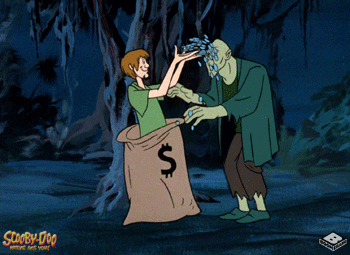If you use credit cards regularly, it’s crucial that you have the best card for your needs. So, if it’s been a while since you got your credit card or things like your income or spending habits have changed, it might be time to replace your old card with a new one.
If you’re not sure whether you need to upgrade or downgrade your credit card, we’ve put together a list of 10 times when you should consider it.
But first…
What’s Ahead:
- What does it mean to upgrade or downgrade your credit card?
- 1. You can’t remember when you got your credit card
- 2. Your spending habits have changed
- 3. Your credit card isn’t even offered anymore
- 4. Your credit score has improved
- 5. You’re not earning any rewards
- 6. Your income has increased
- 7. You’re paying an annual fee that’s not worth it
- 8. You have your eye on a sign-up bonus
- 9. You have a major purchase coming up
- 10. You want a specific perk or feature
- Best credit cards for upgrading
- Summary
What does it mean to upgrade or downgrade your credit card?
Both terms basically mean the same thing: swapping out your existing credit card for another one with the same issuer, but that better suits your needs right now. Since it’s with your existing issuer, you typically don’t need to apply from scratch — they already have you on file and know your credit history. This could eliminate the dreaded hard pull on your credit.

Source: Giphy.com
If you upgrade your credit card, you’re likely going for a higher tier credit card — something that offers travel perks, cash back rewards, and/or perks like airport lounge access, insurance (for anything from travel to cellphones), access to special events, free hotel nights, and more.
Keep in mind that with all the extra bells and whistles, these cards also tend to come with higher interest rates and/or annual fees. They also typically require that you have a high credit score (good or excellent) on file.
If you downgrade your credit card, you’re likely opting out of those extra perks in order to reduce or eliminate an annual fee. This could be an option if you’re not taking enough advantage of the perks to justify the cost.
There are a few things to know before attempting to upgrade or downgrade your credit card:
- You likely won’t earn a sign-up bonus when you upgrade your card (though there are rare exceptions). If you’re planning to upgrade your current card to a credit card that’s currently offering a sign-up bonus worth $1,000+ (of which there are many), you’re probably better off just submitting an application instead of upgrading to it.
- You can typically only upgrade and downgrade your current card to a credit card that’s in the same family. For example, if you’ve got a personal United Airlines credit card, you can “product change” that card to another United Airlines credit card — but you wouldn’t be able to change it to a World of Hyatt credit card.
- You might need a certain credit limit when upgrading your card. As an example, Visa Infinite cards have a minimum credit limit of $10,000 — so if your current credit card has only $2,000, your issuer probably won’t let you change your card to a Visa Infinite card (though you may be able to reallocate credit from some of your other cards issued by the same bank).
Now that we’ve established all that, let’s dive into 10 reasons why your credit card may be due for an upgrade or downgrade.
1. You can’t remember when you got your credit card
These days, credit card issuers are constantly competing to win over customers. That means constantly tweaking their rewards and perks. So, if you got your current card many years ago, chances are its benefits don’t stack up to some of the cards your issuer offers today.
Consider what kind of spender you are and what kinds of rewards you value most. Do you love to travel? Then you might want a card that offers great points or miles for bookings. Or maybe you’re all about cash back. There are plenty of cards out there that offer great rewards for everyday spending, like 2% cash back on all purchases.
Whichever way you spend, there’s probably a credit card with your existing issuer that can help you earn more rewards.
2. Your spending habits have changed

Source: Giphy.com
A lot of rewards credit cards offer bonus rewards on certain spending categories like groceries, gas, streaming services, and dining out. And if you’re now spending more in certain areas, it might be worth getting a credit card that will reward you more for those purchases.
Even credit cards within the same “card family” can fit extremely different spending patterns. For example, if you plan to do more traveling, you can upgrade your Chase Freedom Flex℠ to a Chase Sapphire Reserve® Card to earn the most bonus rewards.
Or, if your spending is all over the place, you can make a lateral product change to the Chase Freedom Unlimited®, which earns a minimum of 1.5% back on all purchases.
3. Your credit card isn’t even offered anymore
If your credit card has been discontinued, it’s likely because your issuer has replaced it with a better card.
Just keep in mind that you might not qualify for a card’s sign-up bonus if you upgrade to it from a different card, since you’re not technically a new customer. (Although it can’t hurt to ask — there are times when you may be eligible.) But even if not, getting a new, current credit card is usually a good thing because it means you’re likely getting access to better terms and conditions.
4. Your credit score has improved

Source: Giphy.com
If your credit score was poor or fair when you got your credit card, chances are that the card’s benefits are lacking and its interest rate is high. If you’ve checked your credit score and it’s in a much better place, you could potentially qualify for a better card.
This is especially true if you’ve been using a secured credit card to build your credit. Once you’ve proven yourself reliable to the credit bureaus, you no longer need to put down the deposit that secured credit cards require.
And yes, once you close your current secured account, you’ll get your deposit back — it’s your money!
Read more: How to get a free credit report and credit score
5. You’re not earning any rewards
Not every credit card offers a rewards program, especially cards for bad credit or that offer long 0% APR promotions. But if your current credit card doesn’t have a rewards program, you’re leaving money on the table.
There are all kinds of credit card rewards programs out there, from cash back rewards to travel rewards. And while some cards do come with annual fees, often the rewards you earn will more than make up for the fee. It’s worth checking out which ones your issuer offers and upgrading to one that earns you rewards you’ll use.
Read more: Best rewards credit cards
6. Your income has increased

Source: Giphy.com
Nobody likes paying an annual fee — but that doesn’t mean it’s not worth it. The only reason to pay an annual fee is if you’ll save more than you’re spending.
If perhaps you didn’t have the money to throw around experimenting with an annual fee-incurring card, you’ve probably kept your distance. But if you’ve got a tad more disposable income, you should absolutely give them a try (after careful analysis of which card will suit your lifestyle).
You’ll soon realize how much value you can squeeze from one of these cards! In some cases, you can’t afford not to pay an annual fee.
Read more: Is an annual fee credit card ever worth it?
7. You’re paying an annual fee that’s not worth it
Just because a card has an annual fee doesn’t mean it’s worth having. In fact, many credit cards for bad credit charge annual — or even monthly — fees without giving you any significant benefits in return.
Alternatively, you could have a rewards credit card that isn’t worth its annual fee, or you don’t use it enough to make it worth it. Switching to a strong no-annual-fee card is a good option.
Read more: Best no annual fee credit cards
8. You have your eye on a sign-up bonus

Source: Giphy.com
This will depend on your issuer’s terms and conditions, but in some cases, existing customers may qualify for a new card’s sign-up bonus when they upgrade their existing card.
So, if you’ve received a special offer in the mail from your issuer, or seen a good credit card sign-up bonus online, jump on it before it goes away. Contact your issuer and find out if you can qualify for the bonus as an existing customer.
You’ll find upgrade offers like this (almost) exclusively from American Express. If you’ve got an Amex card, you can log into your online account and look for a banner urging you to upgrade your card and receive a bonus after meeting specific spending requirements.
With a bit of strategic spending, you could easily earn enough sign-up bonus points or cash back to offset the cost of an annual fee or maybe even take a nice vacation!
Just be sure to pay off your balance as soon as possible to avoid costly interest charges on that intro offer’s spending requirement.
Read more: The best credit card sign-up bonus offers
9. You have a major purchase coming up
If you’d like to finance a large purchase at 0% interest, there are plenty of cards that offer such a promotion on new purchases.
Whether you’re looking to buy a new car or make some home improvements, financing your purchase at 0% APR can help you save money in the long run. Just be sure to pay off your balance before the promotional period ends, or you’ll be stuck with interest charges.
Read more: Best 0% APR credit cards
10. You want a specific perk or feature
Some credit cards offer rare or unique perks that you can’t get with just any credit card. Airport lounge access, cellphone insurance, and no foreign transaction fees are just a few examples.
If you have your eye on one or more cards with your issuer that offer such a benefit, and the rest of the card’s features are also good, go for it.
Read more: Hidden credit card perks and benefits you may not know existed
Best credit cards for upgrading
Let’s look at a few examples of cards that can be upgraded from the major banks.
If you’ve got any of the cards below, be aware that these more valuable cards often come with wildly lucrative welcome offers — so you may want to simply apply for them instead of upgrading to them.
American Express
A popular card to upgrade is the American Express® Gold Card, which comes with a $250 annual fee. You can upgrade it to The Platinum Card® from American Express, which comes with a rather shocking $695 annual fee.
Who would do that?? Lots of people, actually — if you’ll use even a fraction of the card’s benefits. It’s got thousands of dollars in statement credits that the Amex Gold doesn’t. For example, if you’ll use the below credits, it’s easily worth the price hike to upgrade:
- Up to $200 in Uber Cash per calendar year (that’s $80 more Uber Cash than the Amex Gold offers)
- Up to $200 in airline fee credits per calendar year
- Up to $200 in statement credits when booking a prepaid hotel via The Hotel Collection (with a minimum two-night stay) or Amex Fine Hotels & Resorts.
- Up to $240 in annual statement credits (up to $20 each month) toward digital entertainment subscriptions such as Hulu, Disney+, Audible, Peacock, etc.
- $12.95 in statement credits per month toward Walmart+ membership (over $155 in credits per year)
It’s also worth mentioning that you can downgrade the Amex Gold to an American Express® Green Card, which charges a $150 annual fee.
Here’s another example of a common Amex card upgrade: the no-annual-fee Hilton Honors Card from American Express can be upgraded to the Hilton Honors American Express Surpass®, which comes with benefits like:
- 10 Priority Pass airport lounge visits per year
- A free weekend night reward after spending $15,000 on eligible purchases within a calendar year
- Hilton Gold status
Or, you can upgrade even higher to the Hilton Honors American Express Aspire Card, which charges a $450 annual fee. You’ll get:
- A free weekend night reward every year after your cardmember anniversary (worth potentially 150,000 points!)
- Up to $250 in credits for airline incidentals each calendar year
- Up to $250 in statement credits for spending at Hilton resorts each cardmember year
- Priority Pass Select airport lounge access (you can visit as often as you want)
- Hilton Diamond status (the highest status)
As you can see, this card is a no-brainer upgrade over the no-annual-fee version if you can use its benefits.
Read more: Are Amex cards worth it?
Capital One
The Capital One Venture Rewards Credit Card charges $95 per year for its annual fee. But the card doesn’t have much personality beyond its initial sign-up bonus. You’ll get a statement credit to offset the cost of a TSA PreCheck or Global Entry application, and you’ll get two free Capital One Lounge visits each year.
If you don’t want to continue paying a $95 annual fee for a card with relatively few benefits, you can downgrade it to the no-annual-fee Capital One VentureOne Rewards Credit Card.
Or, you can upgrade it to the Capital One Venture X Rewards Credit Card, which has loads of benefits, such as:
- Annual credits of up to $300 when booking travel through the Capital One Travel portal
- 10,000 bonus Capital One miles each year after your cardmember anniversary
- Priority Pass Select airport lounge membership — and free access to Capital One airport lounges
- Superior travel insurance
- Statement credit to offset TSA PreCheck® or Global Entry application fee
If you think you’ll spend $300 through the Capital One Travel portal each year, the Capital One Venture X is a clear winner over the Capital One Venture.
Chase
For years, the Chase Sapphire Preferred® Card has been widely considered the best travel credit card for casual travelers. For a $95 annual fee, it’s got solid travel insurance, great earning rates, and decent ongoing travel benefits.
However, you can upgrade this card to the far more valuable Chase Sapphire Reserve®, which charges $550. It’s worth the extra money if you’ll use benefits like:
- Up to $300 in statement credits for travel related purchases
- Priority Pass Select airport lounge membership and access to (soon-to-come) Chase Sapphire lounges
- One of the best credit card travel insurance on the market
- Up to $15 in Instacart credits each month (through July 2024)
- Up to $10 in monthly Gopuff credits (through December 2023)
Or, if you’d prefer not to pay an annual fee but you don’t want to close your credit card account, you can downgrade your Chase Sapphire Preferred® to a Chase Freedom Flex℠ or a Chase Freedom Unlimited® — both of which are no-annual-fee cards.
Another Chase credit card you may want to consider upgrading is the no-annual-fee Marriott Bonvoy Bold®. Its earning rates are low and its ongoing benefits are weak. By upgrading it to the Marriott Bonvoy Boundless® credit card, you’ll get the following benefits for a $95 annual fee:
- 15 Elite night credits each calendar year (the Bonvoy Bold® also offers this)
- Automatic Marriott Silver Elite status
- Annual free night award worth 35,000 Marriott points
- Much better return rates
- One Elite night credit every time you spend $5,000 on the card
The annual free night that comes with this card can easily be worth over $200 by itself. If you stay with Marriott even once per year, it’s probably worth upgrading to the Marriott Bonvoy Bold®.
Citi
The Citi Rewards+® is a no-annual-fee card that collects Citi ThankYou® points — a currency that you can redeem for cash, gift cards, etc. It’s got virtually zero noteworthy benefits, but it’s easier to be approved for than many other Citi credit cards.
If you’re ready for a much better card, you can upgrade it to a Citi Premier® Card with a $95 annual fee. This allows you to transfer your points to airline and hotel partners such as Accor, JetBlue, Singapore Airlines, Wyndham, and many more. If you’re strategic with your points, you can get more than double the value you’d get when redeeming with the Citi Rewards+®.
The Citi Premier® also gives you: $100 off a hotel stay costing $500 or more (not including taxes and fees) when you book through the Citi ThankYou® travel portal. That benefit alone negates the annual fee if you’ll use it.
Summary
If you’ve got an old credit card, chances are it needs an upgrade. You could be losing out on cash back rewards, travel miles, and/or a lower interest rate.
When you do decide to upgrade, make sure you do a little research and find that credit card that works best for you!


